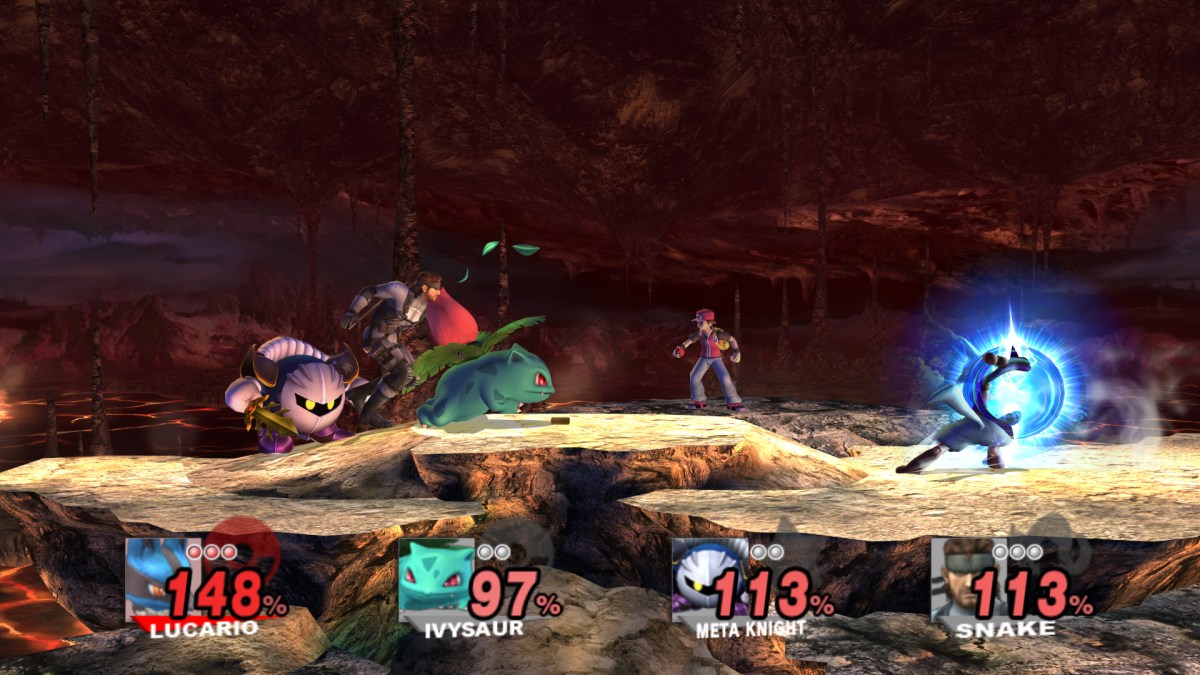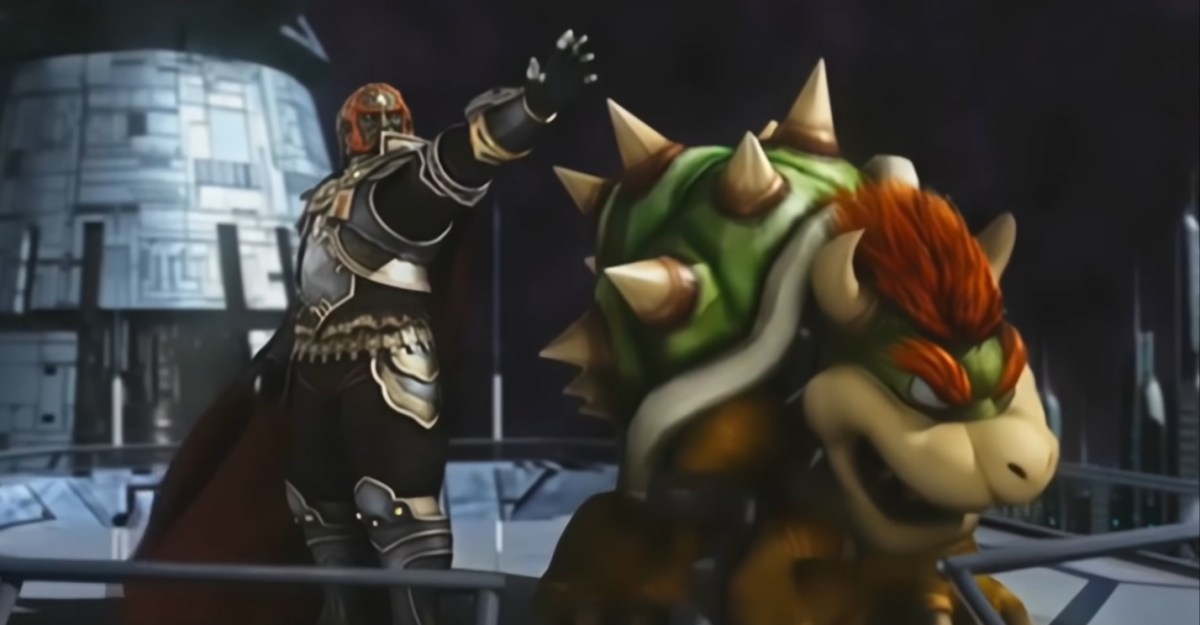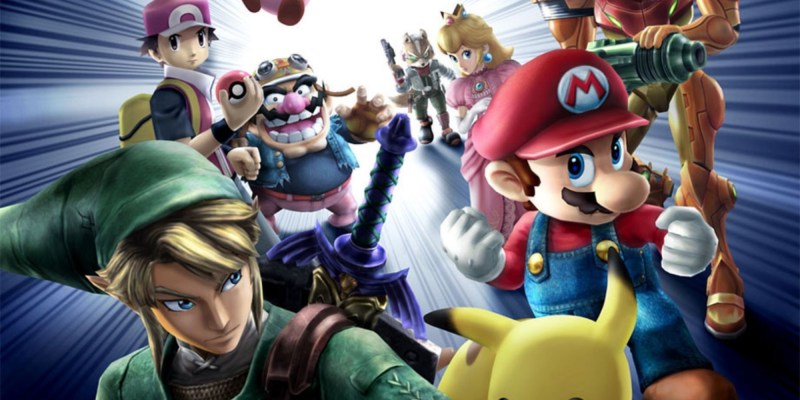I don’t believe that suggesting Super Smash Bros. Brawl is the worst release in the series is an inflammatory statement. The surprise hit that was Super Smash Bros. on Nintendo 64 introduced players to a new party game genre, the platform fighter, that could be picked up with ease yet mastered over time for an endless amount of wacky fun and depth of mechanics. Its sequel, Super Smash Bros. Melee, perfected this formula with a vastly expanded roster, an abundance of nostalgia-tinged extra modes that revel in Nintendo’s history, and a deeper combat system that buried high-level tech within its easy-to-learn roots. Melee was never going to be an easy triumph to top, but Super Smash Bros. Brawl never came close.
Nintendo fumbled the natural progression to online multiplayer by implementing a terrible barebones lobby system with no matchmaking or rankings, but the introduction of pratfalling, more commonly known as “tripping,” to the game might have been its worst offense. At any moment during any fight, a character on screen runs the risk of just flat-out tripping over their own feet and falling to the ground. Through no fault of the player’s, they’d be left incredibly vulnerable to attack, and with no way to disable it, even itemless 1v1s on Final Destination were largely decided by luck.
The tripping mechanic killed any chance players had to enjoy Brawl competitively but was also a nuisance for casual players that might have hoped to reach those levels. The apparent disdain for the competitive scene and wrench thrown into the multiplayer experience almost certainly pushed players into engaging with Brawl’s other game modes, namely the single player / co-op adventure mode called the Subspace Emissary.

This was the first attempt at a proper story campaign for the series. The loose lore for the games up to that point hinted at all the characters being toys in some child’s bedroom, and your epic battles are the imaginative fantasy behind the supposed real-life act of smacking action figures together. The Subspace Emissary didn’t necessarily disprove that theory in Super Smash Bros. Brawl, but it evolved the fantasy into a crossover event on par with the first Avengers movie. Not only were Nintendo’s world-famous mascots facing off in a fighter, but they were interacting in fully 3D rendered cutscenes, arguing with each other and cooperating with each other to face off against common threats.
In the plot, what looks like a friendly fighting competition between Mario and Kirby is interrupted by a strange entity that immediately starts to take hostages, transforming them into motionless trophies using the likes of Wario, Bowser, and Ganondorf as henchmen. New characters introduced over the course of the mode would be paired with odd partners due to extreme circumstances, like Donkey Kong sacrificing himself to save Diddy, leaving him to meet up with Fox McCloud shortly after crash-landing his Arwing.
What’s further impressive is that not a single character is voiced across the entire campaign, yet the emotive gestures, grunts, and sighs from the cast truly tell you everything you need to know about the events unfolding. The story is properly dramatic with intriguing twists. It showcases points of tension between forced alliances and draws out genuine feelings of amazement seeing beloved characters in action.

Outside of the cutscenes, the Subspace Emissary functionally behaved like a multi-staged sidescrolling gauntlet that turned Smash into a semblance of a more traditional action platformer. You would need to use specific characters from that section of the story to fight through stages filled with an assortment of old and new bad guys from across Nintendo’s titles. You’d still have full access to your fighter’s abilities, and the game’s aerial mobility was a good fit for most of the scrolling platforming while seamlessly locking the screen in place to fight tougher challengers in the classic Smash style. Boss battles against Petey Piranha from Super Mario Sunshine or Ridley from Metroid (before he would make his proper debut as a fighter in Super Smash Bros. Ultimate) were nice set pieces that added to the epic nature of the entire experience.
The three Smash sequels that followed have all had takes on a campaign mode since, but none have matched the scale of the Subspace Emissary. The game’s creator, Masahiro Sakurai, admitted himself that he chose to move away from doing this because he thought of them as rewards for playing through the story, but he was dismayed that they could all be easily found online after the game’s release. Smash Ultimate in particular opted to spend all that CG money and effort on character reveals for each new DLC addition rather than on an elaborate in-game plot.
Although the intro to World of Light is a direct continuation that follows Brawl’s ending, that’s the closest we’ve come to the Subspace Emissary’s insane brilliance since. It was truly a one-of-a-kind experience that likely couldn’t be replicated today, so for all of Super Smash Bros. Brawl’s inadequacies, it maintains an air of respect as a fondly remembered oddity in the franchise’s mythos.
